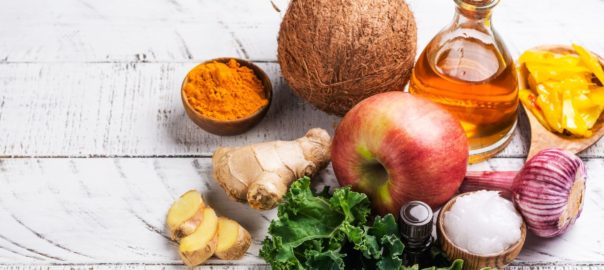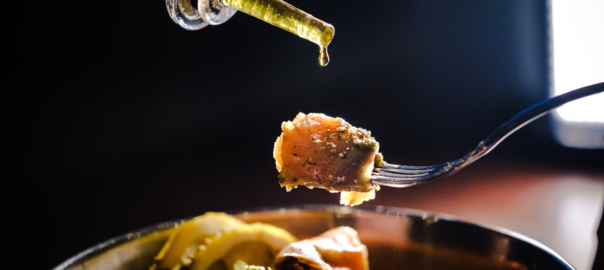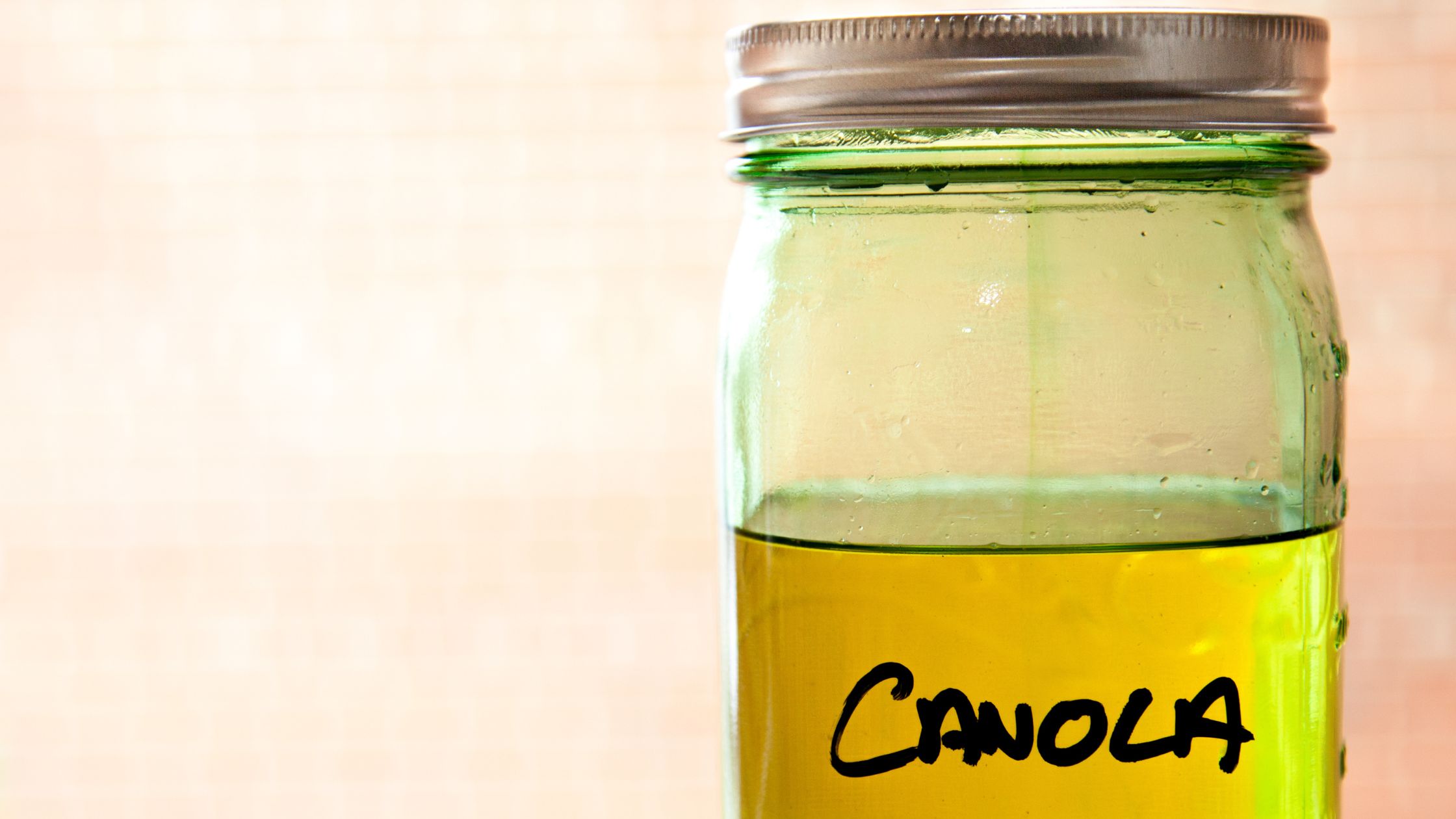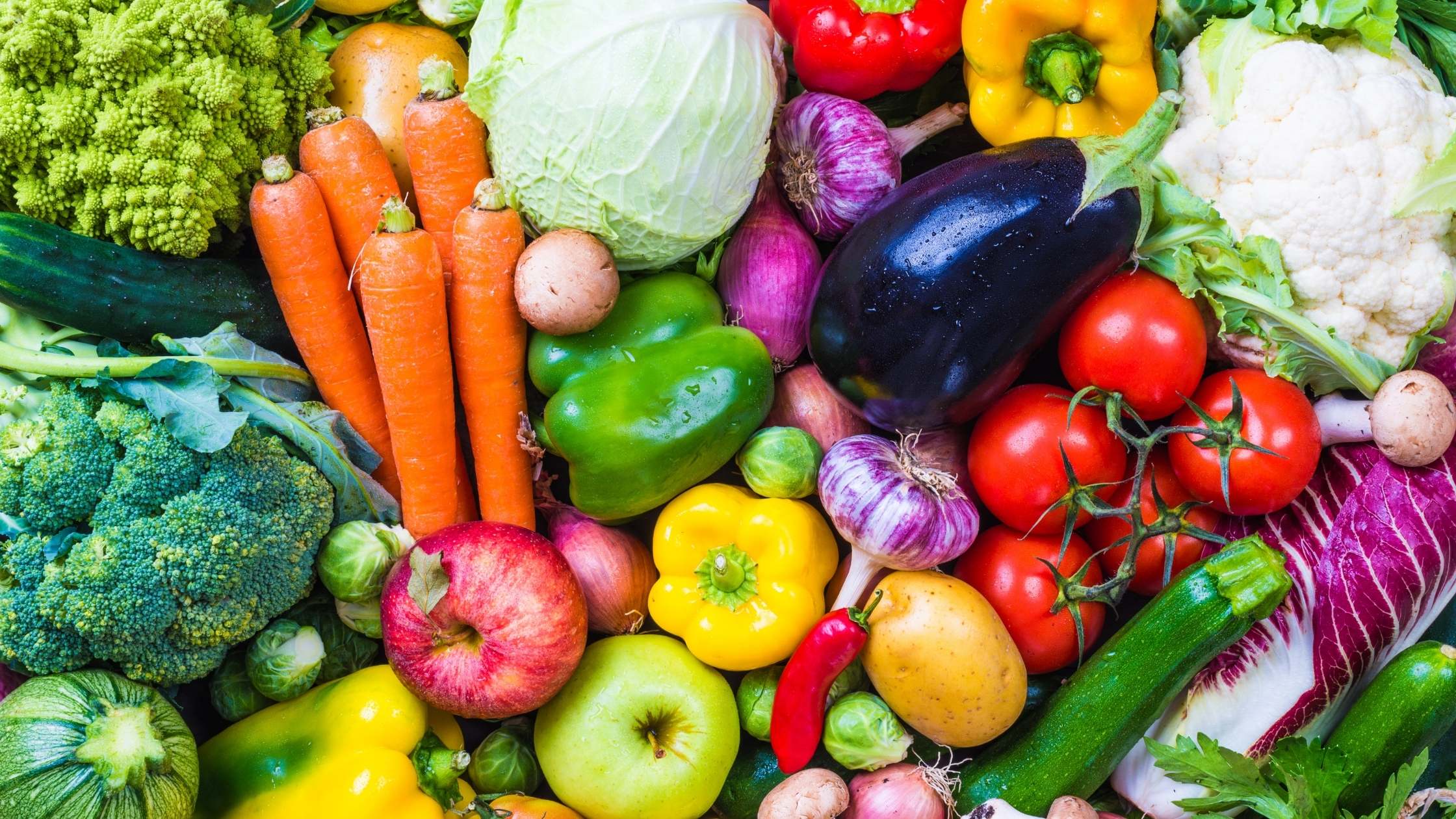Candida is a yeast-like fungus which can cause a wide range of health issues. It is actually a range of organisms with candida albicans as one of the most prevalent. Many people may experience the symptoms of candida overgrowth without realizing it.
The Effects of Candida Overgrowth
Candida overgrowth, or imbalance in the gut, can be the root cause for a wide range of symptoms which may include:
- Chronic fatigue
- Joint and muscle pain
- Memory loss and concentration issues
- Brain fog and focus problems
- Anxiety and depression
- Mood swings and irritability
- Gut and digestive issues
- Recurring vaginal infections
- Skin and nail infections
While candida is a normal part of our body state, it is typically kept in check by a healthy immune system. When we are out of balance, candida can be very opportunistic and essentially takes over, leading to the issues mentioned above. While some low level imbalances can be treated with over-the-counter medications (such as fluconazole for yeast infections), chronic overgrowth needs to be addressed through dietary changes, nutritional support, and possibly antifungal medications.
Causes of Candida
There are a number of reasons why the body gets out of balance. Overgrowth can be caused by poor diet, nutritional deficiency, high levels of antibiotics (which kill off not only bad bacteria but beneficial ones as well), certain medications, a weakened immune system, even excessive levels of stress can contribute to an imbalance in the system. It’s not always easy to pinpoint a specific reason why the overgrowth is happening.
Because the symptoms mimic symptoms of many other health issues it can be challenging to identify. Taking a good look at the combination of symptoms and ruling out other causes is a good way to start identifying if you may have a possible overgrowth. If you’re working with a nutrition professional they may have tests and tools to help you see if you have an imbalance.
Changing Your Diet
Changing your diet can be a good start when dealing with candida issues. Even if your diet is not the reason why you developed an overgrowth, there are a number of foods which can contribute to the overgrowth once it starts. Removing those foods from the diet can, in essence, “starve” the candida so that it does not continue to grow and take over your system.
You’ll want to add foods which are supportive for your system while at the same time removing those foods which feed the candida.
What To Stop Eating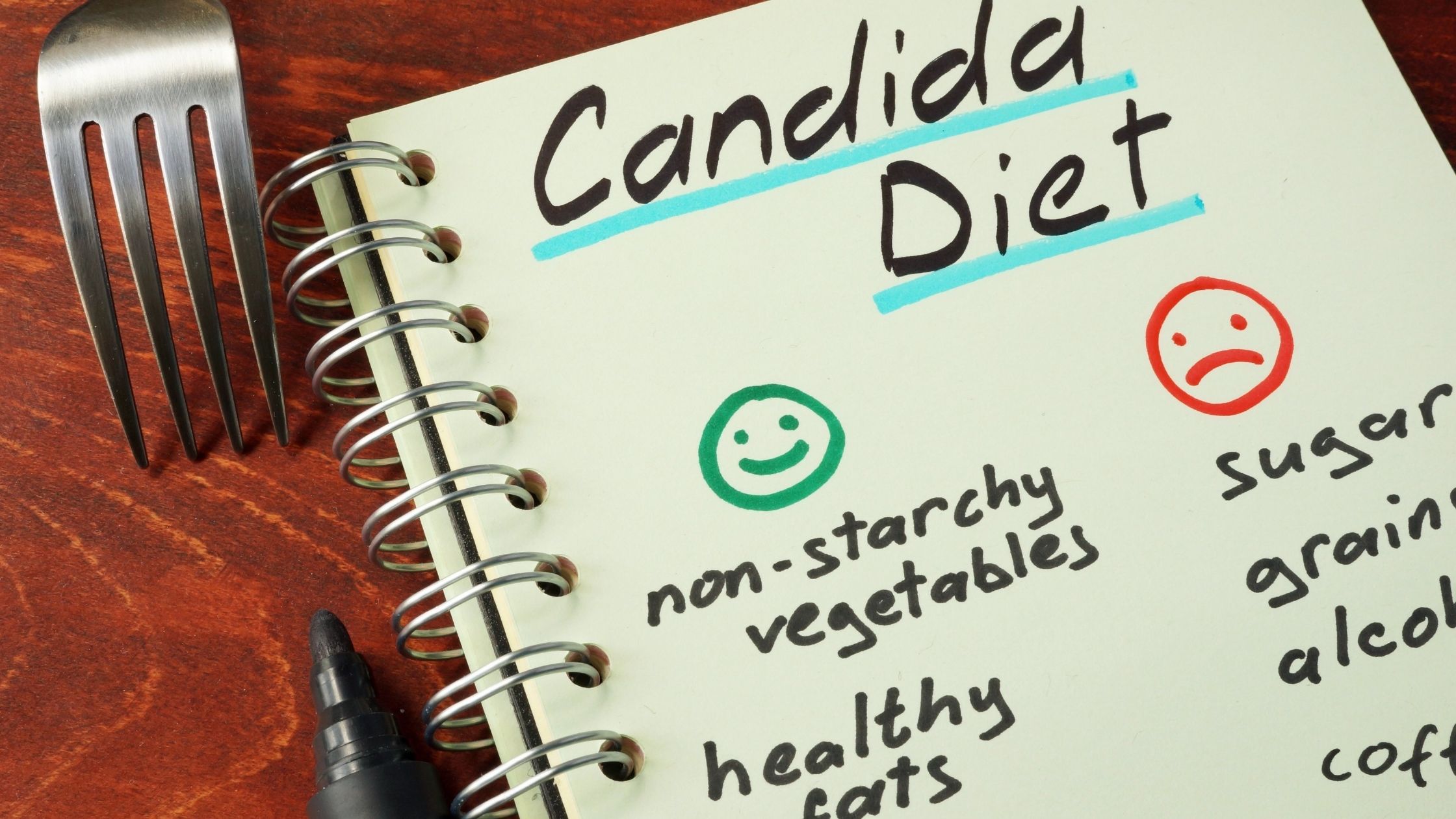
Those foods which contribute to a candida overgrowth situation are those which feed the yeast. This includes:
- Dairy products - dairy contains a form of sugar called lactose. It can also be somewhat inflammatory. So it’s best to avoid all forms of dairy. Ghee, or clarified butter, is allowed, but that is the only form of dairy recommended and only if your system can tolerate it.
- Fruits - these are a form of sugar
- Fermented foods - when you have an overgrowth you don’t want to add in other yeasts or ferments because they will support the candida. This include kombucha, kefir, vinegars, anything made with vinegar such as mustard, etc
- Grains - these are high in carbohydrates and processed grains convert easily into sugars making them another great food to feed the candida. For this reason you need to avoid all forms of grain.
- Mushrooms - these are a fungus and can support the candida yeast culture
- Refined or highly processed carbohydrates - junk food, pasta, etc
- Starchy vegetables - things like potatoes, corn, beets, and legumes
- Sugars - Unfortunately sugar is something that feeds the candida. So we need to avoid it completely. You know it’s in things like candy, cookies, baked goods, ice cream, etc. But you also want to read labels and avoid sauces, condiments, dressings, and other packaged foods that may have added sugar.
Healthy Choices For Candida Support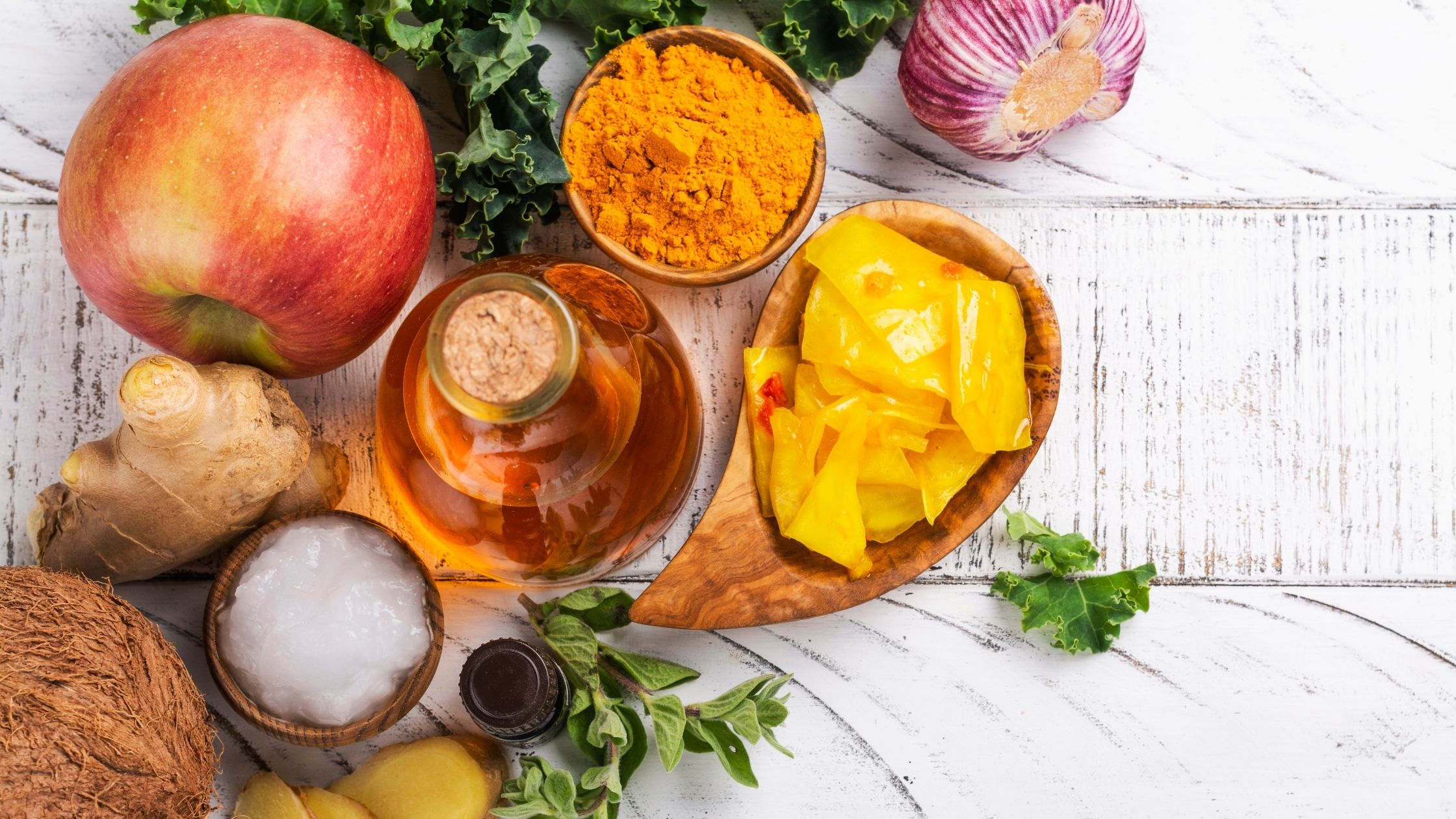
You want to be sure you’re adding nutrient dense, anti-inflammatory foods. You can still enjoy lots of delicious foods while on your candida protocol
- Healthy fats - healthy fats are good for you, things like avocado oil and olive oil. One fat in particular, coconut oil, is highly beneficial because it contains compounds that can help fight the candida.
- Protein - You want to make sure you’re getting enough good quality proteins. Whenever possible choose pastured or free range poultry and beef. If you’re choosing fish be sure it’s wild caught.
- Spices - Some spices are not only delicious, they have anti fungal properties and can be highly beneficial when it comes to helping with candida. These include: Cinnamon, cloves, garlic, ginger, oregano, pau d’arco (usually found as a tea), and turmeric. Be sure to include more of these in your diet.
- Vegetables - choose low-starch veggies like leafy greens and cruciferous vegetables. Asparagus, carrots, jicama, and zucchini are also delicious and nourishing choices.
Food Reintroduction
By making healthy choices it is possible to get the candida under control. Sometimes you may need to consult with a doctor for additional anti fungal support if you have a significant case of overgrowth. But eventually, you should be able to start reintroducing some foods back into your diet.
Obviously not the highly processed and high sugar foods. You don’t want to go back to bad habits and eventually find yourself back at square one. But mushrooms, beets, and facto-fermented foods can be good for you when you’re not dealing with candida overgrowth.
Adding foods back in is a slow processes. But when you do this step by step you are making sure you are not overwhelming your system.
Start by choosing one food which you would like to add back in:
- Have one serving on day one
- You will then wait five days before having another serving.
- Using your food journal note any symptoms from the list below that might indicate sensitivity to that food
- After five days try the food again and wait another five days, being mindful of possible symptoms.
- If after two exposures there is no reaction this food can be added back into the diet
- It is recommended that foods be added back in gradually. Once you’ve successfully reintroduced a food you can enjoy it in moderation. Keep in mind that we are supposed to have a varied diet and not eat the same ten foods every day.

